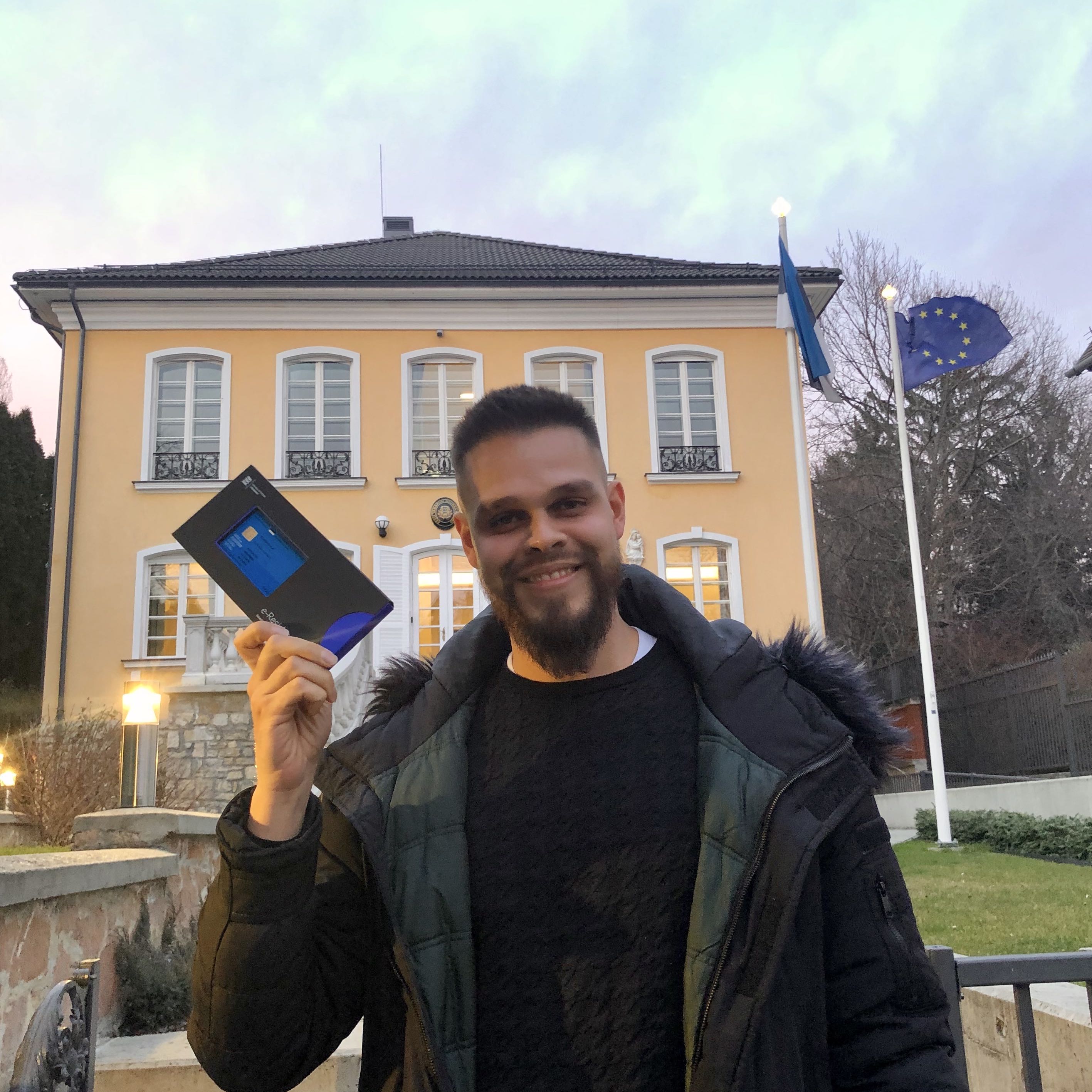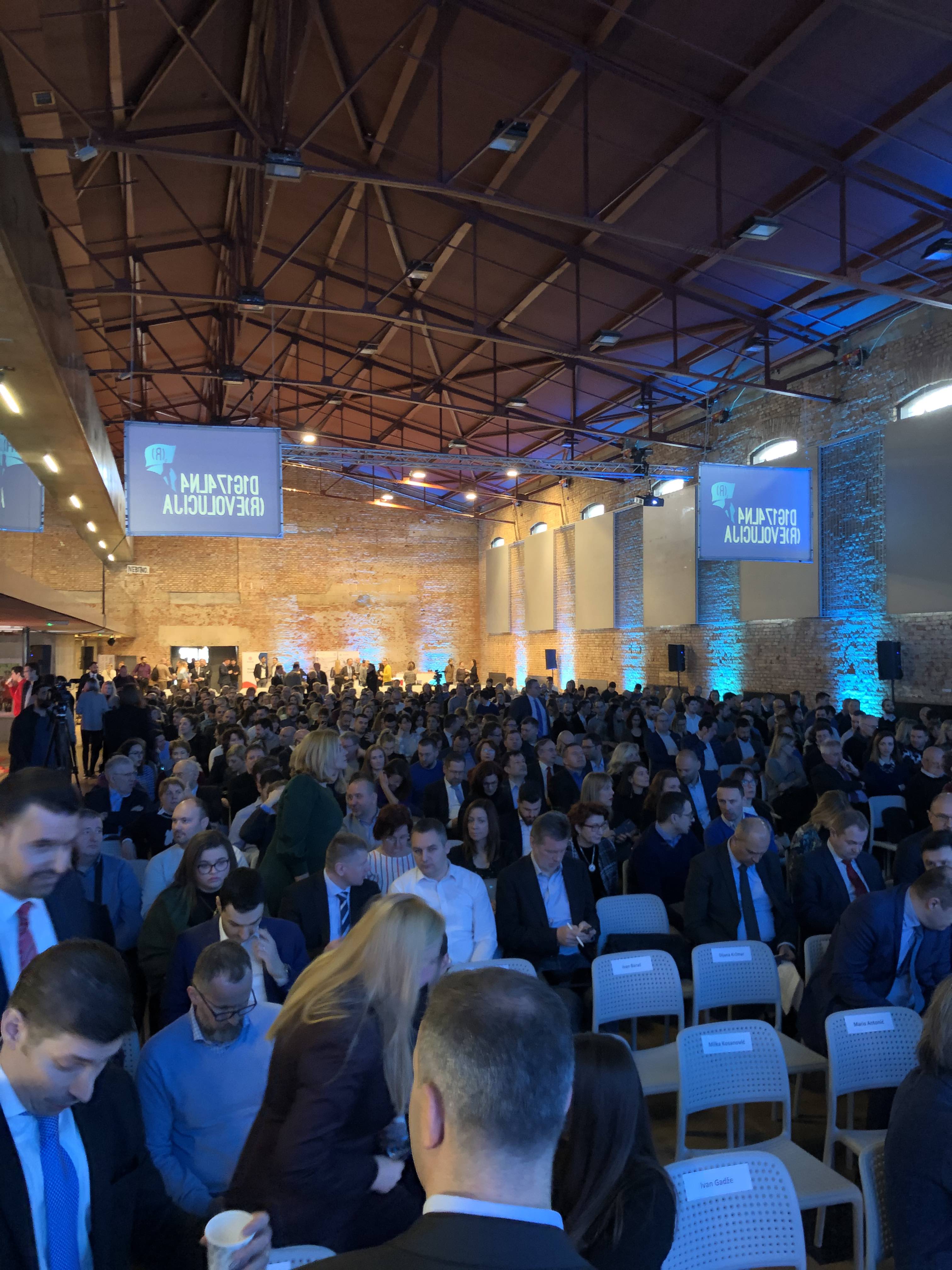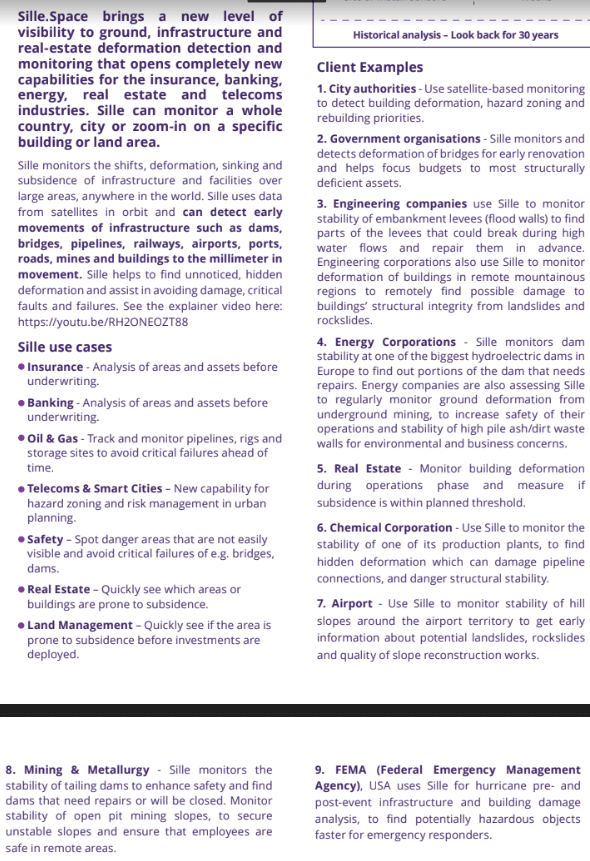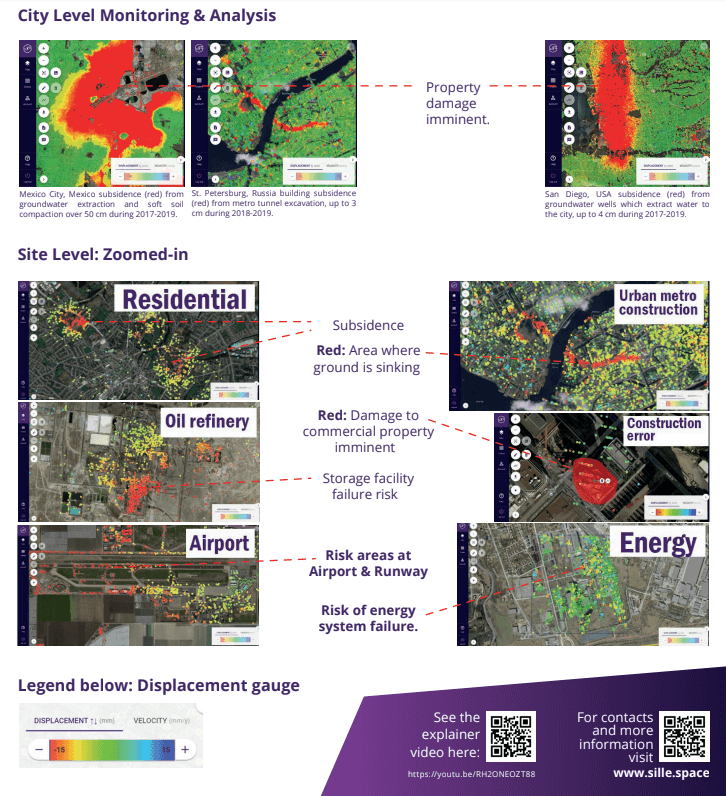Croatian Women's Bowling Team Wins Bronze At World Bowling Championship
ZAGREB, 19 May 2022 - The Croatian national women's bowling team on Wednesday won a bronze medal at the World Bowling Championship in Elva, Estonia, having knocked over 3,541 pins.
The gold went to the German team, which knocked over 3,650 pins and the silver to the Slovenian team, which had a score of 3,543.
Croatia Becomes 2nd Country to Accept Estonian Digital Prescriptions
September 1, 2020 - As Croatia's Prime Minister announces plans for a Croatian digital nomad visa, Estonian digital prescriptions are now accepted in Croatia.
Is Croatian Bureaucracy 2.0 starting to put up roots?
Last week, we did a story on the efficiency of the Croatian border police EnterCroatia form, which has been an unqualified success in reducing border waiting times. Almost 2 million vehicles, carrying 4.6 million passengers had their border formalities reduced to just 30 seconds each in special fast-tracked lanes in some cases, eliminating an impressive 21.7 years of unnecessary waiting time in the process.
The big current buzz, of course, revolves around Prime Minister Plenkovic's announcement that his government will introduce a digital nomad visa for Croatia, making it only the fifth country in the world to do so, thereby opening Croatia to remote workers from all over the world.
But it seems that the path to digitalisation is happening elsewhere too.
Estonia is the undisputed champion of digitalisation, a shining example to emulate, and I am encouraged that Croatia is looking to the Estonians for the nomad visa framework. Hopefully, they will be back to explore other ways in which Estonia is operating its efficient digital bureaucracy.
This story caught my eye this morning, simply because I would not have expected Croatia to be only the second country to adopt such a measure. According to the Estonian ERR news service, Croatia has become only the second country in the world to accept Estonian digital prescriptions, with Finland being the first.
"This is happening because Croatia has today put its national digital solutions in place, to ensure that the service also works across borders," Tõnis Jaagus, head of TEHIK's health service, said.
"Currently, citizens of Finland, Portugal and Croatia can buy their prescription drugs from Estonia; and Estonians will next gain the opportunity to buy digital prescription drugs in Portugal," Jaagus said.
For the latest travel info, bookmark our main travel info article, which is updated daily.
Read the Croatian Travel Update in your language - now available in 24 languages
Estonian Company Datel Offering Zagreb Earthquake Aftermath Satellite Tech
April 17, 2020 - What if there was a technology that allowed you to monitor movements on Earth to the nearest millimetre? Tech which could help assess the safety of buildings after the Zagreb earthquake, for example. There is. Meet Datel from Estonia.
The one country I am VERY keen to visit again after all this madness is over is Estonia.
My first visit was back in 1992 in the early days of the post-Soviet era, and my last a weekend break to Tallinn from the UK in 1996. And had it not been for an increasing interest in the digitalisation of Croatia and the VERY helpful lady representing Estonia in Zagreb during Croatia's EU Presidency (remember that?), there my interest in Estonia might have ended.
But those Estonians are doing incredible things leading the digital revolution globally, and Zagreb representative Katre Sai has been incredibly helpful. Before all this madness, TCN was in the process of organising a trip to Tallinn with various forward-thinking mayors and other officials and representatives from the digital private sector, to visit Estonia and see what lessons could be learned and partnerships formed. That project is on hold for now for obvious reasons, but it will happen at a later day.
Apart from transparency, Estonia also has some fantastic tech startups - indeed the four Estonian startup unicorns of Taxify, Skype, Transferwise, and Playtech mean that Estonia has the highest number of unicorns per capita in the world.
And now, something rather incredible to add to that list, which was sent to me by Katre and could be a great help in helping assess the danger of the many damaged buildings from the Zagreb earthquake - Estonian technology from Space which tracks the tiniest movements on Earth, which can enable damage assessment:
An Estonian company has reached out to us after the earthquake to introduce their solution for situations similar to this. The name of the company is Datel and they have created a product which enables to detect building and infrastructure deformation using remote sensing satellites to find damaged and hazardous objects, that could be dangerous. Before the earthquake the system can detect building and infrastructures that are structurally deficient (they have 5 years history), thus have a great probability to collapse or fracture. After the earthquake, the system can detect buildings and infrastructure that was damaged (deformed) the most, and the rescue crew can focus their attention (and operations) first to the most damaged objects, saving time and money. Also, the state engineers can use this data to inspect the damaged buildings, which could be unnoticed otherwise. The results are by default delivered in an online map application and ready to use at once.
Rather than me comment as this is not my field of expertise, check out the info below and the VERY informative video. I hope this is useful for some in authority - please feel free to share the service. It has applications far beyond Croatia's borders obviously. You can learn more about Datel and the Sille Space technology on the official website.
Estonia, Leading European Digitization Path, A Great Role Model for E-Balkans
February 14, 2020 - So what is a Venezuelan living in Varazdin doing travelling to Budapest to collect an e-residency from the Estonian Embassy? Meet a role model for e-Balkans.
There's so much to say about Estonia. The Baltic nation is home to 1.3M citizens, and producing the highest amount of unicorns per capita (Bolt, TransferWise, Skype, and Playtech). It offers a comfortable 20% income tax flat-rate for private entrepreneurs and corporations, and last year 98% of its population declared their taxes electronically in less than 3 minutes.
Also, they started to implement Blockchain for hash-linked timestamps in their systems nine years ago. Yup! That's 2011. For reference, that's the year Steve Jobs died, and the then 3-year-old bitcoin closed at $4.72 on December 31st.
Today, however, we will focus on their e-residency program, launched in 2014 by the e-nation as part of their Country-as-a-Service plan.
Last Thursday, February 6th of 2020, I traveled to the Estonian Embassy to Hungary in Budapest, to receive my "e-residency kit" from the hands of the Consul Kenneth Kopammes.

The e-residency Kit includes a residency card (without profile picture) and a USB-card-reader. With it, I'll be able to sign electronically and access any of the services available
The experience was eye-opening, and this although I was very aware that giving my digital prints and receiving my e-residency card would be the first and last time I'd need to visit any Estonian government building, physically.
To better understand my excitement and motivations, you first need to know that this 2020 is the 17th anniversary of my arrival to Europe. Also, that as of today, I still hold a Venezuelan passport, exclusively.
I left Venezuela in 2003, or better said, as soon as my age made it legally possible for me to migrate. Today, I'm a self-proclaimed "Citizen of the World" who lived, studied, and worked in Venezuela, Germany, France, Spain, Denmark, Malta, and Croatia, visiting an even more considerable amount of jurisdictions.
In short, you can consider me a Connoisseur of Bureaucracy, a Sommelier of Visas and Residencies, and a European Authority on the ancient art of requiring Stamps and Permits to earn a living.
With this in mind, picture my reaction as I learned there was a Schengen state of the European Union, allowing a Venezuelan to open a business online and in a few hours. First, I thought: "What am I missing?" and immediately after reading into it on their dedicated service portal, I knew: "I have to try it out!"
One needs to become accustomed to the digital state experience, even a Human-Computer interaction futurist like me. By the end of 2019, Estonia had 62,000 registered e-residents and 10,000 e-resident companies. I knew this, of course! Like I also knew that 99% of their state services are online, and regardless, although all the cards were on the table, it shocked me to learn about the Embassy's staff count and the efficiency of their operations.
Here is the workforce I was expecting to see at the Embassy to complete the process of my e-residency and interviewing the Consul: Entrance staff, service-desk Staff, e-residency processing staff, PR staff, the Consul's PA, and finally, the Consul.
The Staff I interacted with: The Consul.
And who opened the front door? You wonder. Who let you into the processing room? Who sat in front of you and typed on the Keyboard Gustavo?
Well, all doors are remote-controlled, that was easy. And like any other e-resident, I had an appointment previously confirmed via e-mail, so I was the only person in the room that day. The process took at most 3 minutes, a quick preview of the time I'll need for tax declarations. And the person guiding me throughout the steps, with a broad smile, processing my data, and assisting me in scanning my fingerprints was Kenneth, the Consul, as he pointed out me when I asked him about the agreed interview ahead.

What an honour, I thought to myself, when I learned that Mr. Kenneth Kopammes and the Ambassador Mrs. Kristi Karelsohn operate the systems themselves. They welcome every visitor personally and hand over the e-residency kit to all new Estonian e-residents.
KK: "I tried to ask everyone what they will do with their e-residency and what their plans are. The vast majority want to open a business, and the other 1% are what we call "Estonian fans" or just people who would like to participate in something innovative."
Admittedly I belong to that 1%. The Estonian is the most advanced digital society I've come across, and there's much to learn from them. To run an embassy in such an efficient and human way, was unheard of to me, a real Country-as-a-Service. I don't recall feeling higher respect towards any other government official, as I did that day.
I recommend you reading Paul Bradbury's article on the "Rock Star" status the Croatian politicians enjoy: Would Croatia Be Better If Its Politicians Were Not Treated as Rock Stars?
Now, going back to the more practical reasons why I decided to open and run a company in Estonia while living in Croatia. The first and most important reason is the simplicity and transparency of their systems. By this, I mean the government and tax systems, not necessarily the ones in their computers. Without this, I certainly would not even consider it. I'm sure many of the other 60k e-residents share the same reason.
KK: "Last year, our Embassy gave out over 170 e-Residency cards, the vast majority of which to applicants from Hungary and the Western-Balkan countries. As our Embassy reopened at the end of 2018, many Croatian applicants received their e-Residency cards from other neighboring Estonian Embassies. People from Croatia interested in e-Residency are very much welcome to receive their cards from our Embassy in the future."
My second reason is TO LEARN. I can read websites and watch YouTube videos, or I can try it out for myself, experience it, and participate by promoting what works. In short, I wish to gather as much experience as I can, aiming to help pave the way for the imminent e-Balkan revolution.
KK: "The Embassy tries to engage with our existing local e-Residents actively. For example, last November, we had two excellent events dedicated to the fifth anniversary of the e-Residency program."
For more info about the community aspect of e-Residency, follow the links below:
Blog.
And the third reason is mobility. I'm a Self-proclaimed "Citizen of the world" and nomad (before the "digital-" prefix was a thing), remember?
KK: "One of the things that the system does not yet allow is to get married online. It affected me, personally, since I decided to marry my now wife after we moved here a year ago. To do that, we had to go back to Estonia three times!. Marriage is one of the few things that are not yet online, but it's in the works!"
All information is available in simple and understandable English online, and I feel convinced that it is always up to date. Most foreigners need to jump through hops and fire rings to get any document sorted in Croatia. Opening a company is not nearly as easy as advertised, and it is much worse to run it.
In Croatia, I can rarely rely on any information given to me, be it online or in person. The information changes from person to person, and from office to office. The time of the day you ask, your appearance and looks, who their "Kum" is, and your ability to seem "simpatićno" are all potential influencing factors during the process. In the best cases, a Croatian government official will admit not to have the slightest clue (or interest) by asking you to "send an e-mail with your question" while you stand in front of them. The fact that 4M people need to invest hours, if not days (thanks to the very centralized systems) in getting to their offices for stamps and papers, seems to be insignificant to the Croatian state. #TrueStory
I'm so used to having to bring a Croatian defender (lawyer, or anyone wearing a suit and speaking the tongue) to assist me in getting things done, that I don't even bother in translating and reading the information I receive any more. It's more relevant to know how many friends my lawyer/representative has in MUP, Porezna Uprava, and Courts than actually understanding the principles and rules.
"But Gustavo, what if you learn Croatian!?" Yes, I hear you, I could, and I am learning Hrvatski out of pleasure. However, when it comes to my financial security and independence, I prefer to run a business online, in simple English, and without any geographical limitation. Time is Money, and time invested in enjoying my digital-nomad-family lifestyle, as opposed to trying to figure out the system and the emotional state of the many actors influencing it, is priceless.
As I wrote at the start, there's so much to say about Estonia. So much to learn, try, compare, and analyze that I've decided to start a series of articles dedicated to it.
And based on the large attendance to HUP's event last February 5th, 2020, "D1G174LN4 (R)EVOLUCIJA" celebrated in Lauba, Zagreb (image below) I'm sure we will be talking a lot about this topic this and the coming years.

Last January, Estonia passed a bill allowing digital nomads (or remote workers) to come to Estonia and work from there. Could that be something Croatia can replicate soon? Read more into the topic of Digital nomads in Paul's article:
"How Croatia is Becoming Increasingly Attractive for the Digital Nomad Lifestyle"
Lessons from Estonia: Farewell Uhljebistan, Welcome to the Future?
June 24, 2019 - If other countries in Eastern Europe can do it, why can't Croatia. Mighty Estonia, leading the world in the approach to the future. Some lessons...
The last time I was in Tallinn was in 1996, and my visit coincided with the Scottish football team due to play Estonia in some competitive game. I say due to play, as the Estonians never turned up, and Scotland kicked off on a pitch with no opponents. The match was abandoned two seconds later, and Scotland was awarded a 3-0 victory. The abiding memory was the chanting of the Scottish supporters:
"One team in Tallinn, there's only one team in Tallinn."
My first visit was four years earlier during my time in Russia in 1992. And, charming as Tallinn and Estonia were, it was hard to think that this Baltic republic, which was struggling to remove the shackles of its Soviet domination, would ever amount to anything significant on the world stage.
But it has.
And how.
A little innovative thinking from the early days of independence in 1991 to Estonia in 2019, the market European leader in digitalisation and progressive practices.
A tiny country of 1.3 million people with no outstanding resources of its own now one of the global leaders of future trends.
In the words of the World Economic Forum:
Estonia is often described as a genuinely digital society. Today a majority of government services are offered 24/7 online, and data integrity is ensured by blockchain technology. You can use medical e-prescriptions, file taxes, or even buy a car online without needing to go to the vehicle registration office. There are only a few things that you still need to do in the analog world, such as get married or buy property.
Why spend your life waiting in line for a piece of paper that proves you are you? Governments must learn to provide public services as efficiently as Amazon sells books: no physical presence, no cost of application, no opening hours.
For some weird and unexplainable reason, people normally expect better services from private companies than from their own governments. This is not the case for our citizens in Estonia. They expect a lot from their government and are constantly demanding us to improve and innovate. Estonians expect that if the private sector is constantly innovating, the government should be, too.
Take a moment to learn a little more from this CNBC International video feature, How Estonia became one of the world’s most advanced digital societies.
If Estonia can do it...
As lovely as Estonia is - and it IS - Croatia, with its huge tourism industry, great weather, safety, natural beauty and relaxed lifestyle, is a natural draw for the ever-growing army of digital nomads who are taking their wealth-creating lifestyles to the most interesting parts of the planet. It is estimated that there will be 1 billion digital nomads by 2035. If Croatia, with all its natural advantages, could attract just 2% of them, that would be 20 million digital nomads, quietly spending independent of the tourist season - more than the number of tourists currently visiting Croatia each year.
If Croatia is willing to learn lessons from others, there is so much potential - so much.
Lessons from Rwanda in how to promote tourism through football, for instance.
Lessons from Macedonia in how to promote wine.
Lessons from Malaysia in how to promote medical tourism.
Lessons from New Zealand and Northern Ireland in how to promote Game of Thrones.
Lessons from Swaziland, Bosnia and Serbia in how to promote the Chamber of Economy.
Will sometime soon the citizens of the Kingdom of Uhljebistan say enough is enough and fight to be on the same playing field of Rwanda, Estonia, Bosnia, Serbia, Macedonia and Swaziland (now known as Eswatini)?
To learn more about being a digital nomad in Croatia, check out the Total Croatia guide.
Startups in Croatia: Estonian Entrepreneur Gives Croatia Advice
Entrepreneurs and startups in Croatia often have a difficult time getting things off the ground when starting with their business here, with the country's notoriously draining red tape and a usually slow and outdated approach to everything, launching a business, company, or startup in Croatia isn't a particularly attractive thought for most. Despite that, many startups in Croatia are seeing the arduous process through to the end, and are succeeding.
Just what can Croatia and Croatian startups learn from the wildly successful TransferWise founder?
As Novac.hr/Jutarnji/Gordana Grgas writes on the 15th of December, 2018, because of his ''robbing'' of the earnings made by banks on their faithful customers' money, this Estonian entreprener is being referred to as a modern day Robin Hood.
The financial and tech startup that he founded with his partner back in 2011, TransferWise, was one of the most valuable in the United Kingdom of Great Britain and Northern Ireland and was built on the foundation of offering a cheap and fast money-sending service around the world with the help of a simple and handy mobile app. Already holding 0.5 percent of the global market, transferring about 4 billion dollars per month, and having four million users, it's not doing too badly, to say the very least.
The brain behind the genius idea which is rubbing the banks up the wrong way is Taavet Hinrikus, 37, an Estonian citizen, and this past week he was in Zagreb, because in the meantime, he has gone a step further and become a business angel, entering into the development process of the promising Croatian startup based in Osijek, Gideon Brothers, which deals with robotics and was founded by Matija Kopic and Milan Račić, who he says are a fantastic team.
While Novac.hr talked with the Estonian in the Katran club, where the first industrial robot made by Gideon Brothers had just been presented with great enthusiasm, the talented entrepreneur was asked about just how he earned the title of Robin Hood, Nottingham's famous outlaw who went down in history by robbing the rich and giving to the poor. Taavet responded with the fact that TransferWise ''returns'' the money to the people, which they would otherwise be forced give banks in hidden and sometimes very unfavourable exchange rate costs when it comes to international transfers.
"We've noticed that as a global problem and we've been able to find a ten-fold better solution for that than the existing ones," said Hinrikus, and this point was also the main ingredient of his ''recipe'' for business success in a lecture he had previously given to his young audience at the largest hall of the Zagreb Faculty of Electronics and Computing (FER). Among the students, all of whom are interested in startups in Croatia, were the minds behind the Gideon Brothers startup from Osijek.
''There's no better place in Croatia to start a technology company than FER,'' Kopić of Gideon Brothers told them.
And what exactly does Transferwise do so well to make it so popular and successful? The best description is probably the fact that it is the ''Skype for money transfers'', and they have succeeded in a world that has been, at least until now, ruled almost entirely by banks and their often unfair fees, these all-powerful banks have been ''wounded'' only by the likes of America's PayPal and Western Union, so far. They came to this business idea because they often sent money to Tallinn from London and were shocked and hindered when they'd see that they lose money each and every time.
''How we started is very simple. We're focused on applying new technology. And we're less greedy,'' said Hinrikus, adding that there's no real reason why sending money electronically should actually be expensive.
They're even anything from five to ten times cheaper than PayPal. Since last year, their services have also been made available in Croatia, and they are currently focusing on the further expansion of their business platform, and further remuneration for cash transfers. They currently employ about 1,300 people, several hundred of them are in Estonia, where both founders are themselves from.
Their success was initially driven by marketing, and they were rebellious against the "evil banks in London", as was recalled by Ivo Špigel, a Zagreb entrepreneur and the founder of Perpetuum Mobile.
Hinrikus's acquaintance with Matija Kopić from Osijek, who also also presented his own startup at the same London event, has gone from strength to strength. Both then won over investor interest with their performances and ideas.
Should Croatia dream of being like Estonia? Novac.hr asked Hinrikus.
''Of course you should. You need a government that appreciates the importance of technology, a government which thinks about how to make the government more efficient itself, and better for citizens with the help of technology,'' responded Estonia's answer to Robin Hood.
Make sure to follow our dedicated business and Made in Croatia pages for more information on startups in Croatia, doing business in Croatia, Croatian companies, products and services, and the business and investment climate.
Click here for the original article by Gordana Grgas for Novac.hr/Jutarnji
Estonians Raise Living Standards to High Degree, Where Are Croats Going Wrong?
What can Croatia learn from Estonia's actions?
Croatia and Estonia Meet in Friendly Tonight in Tallinn, Perišić Takes Role of Captain
The Croatian national football team will face Estonia in a friendly duel tonight in Tallinn. The game will be played at 18:00.




